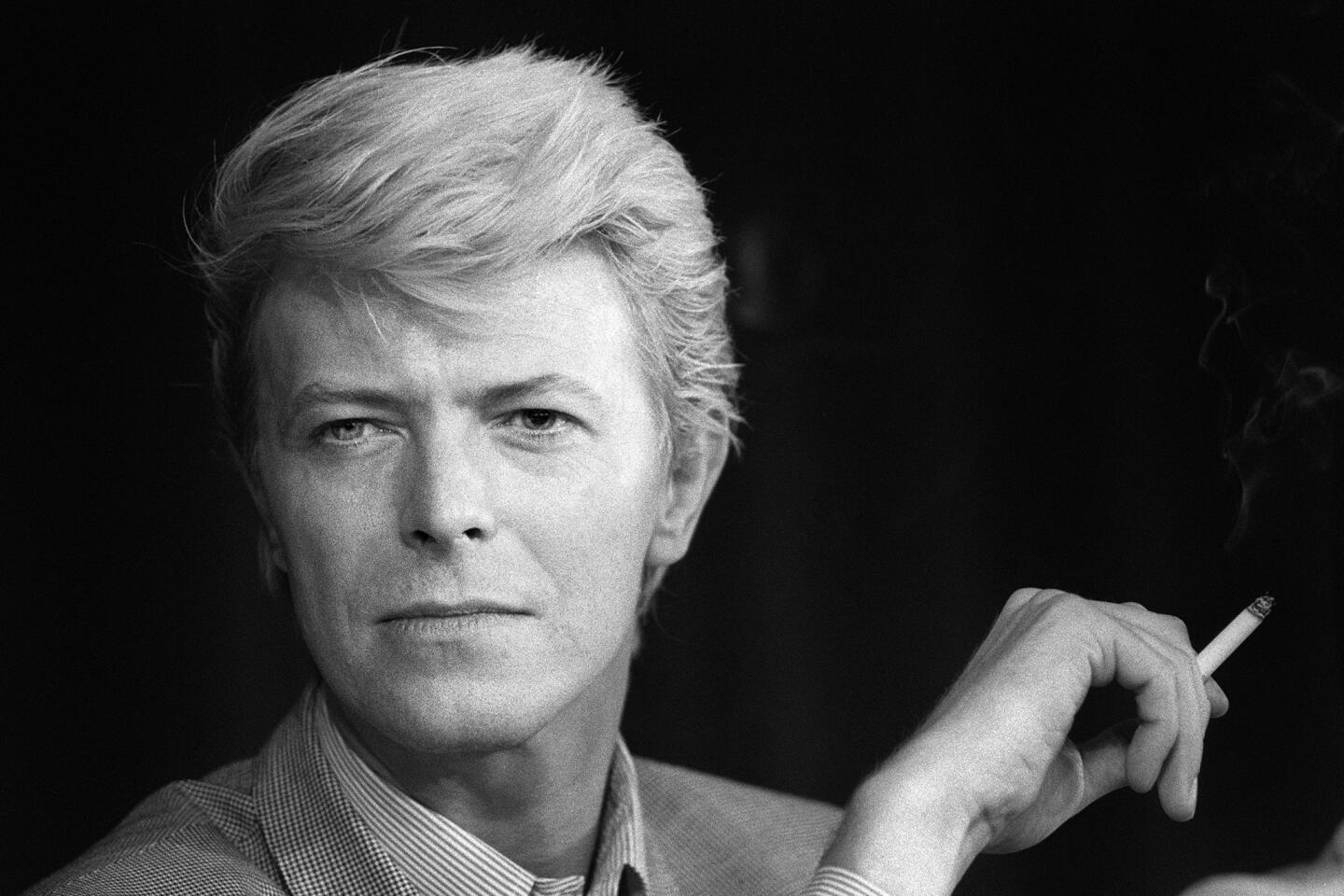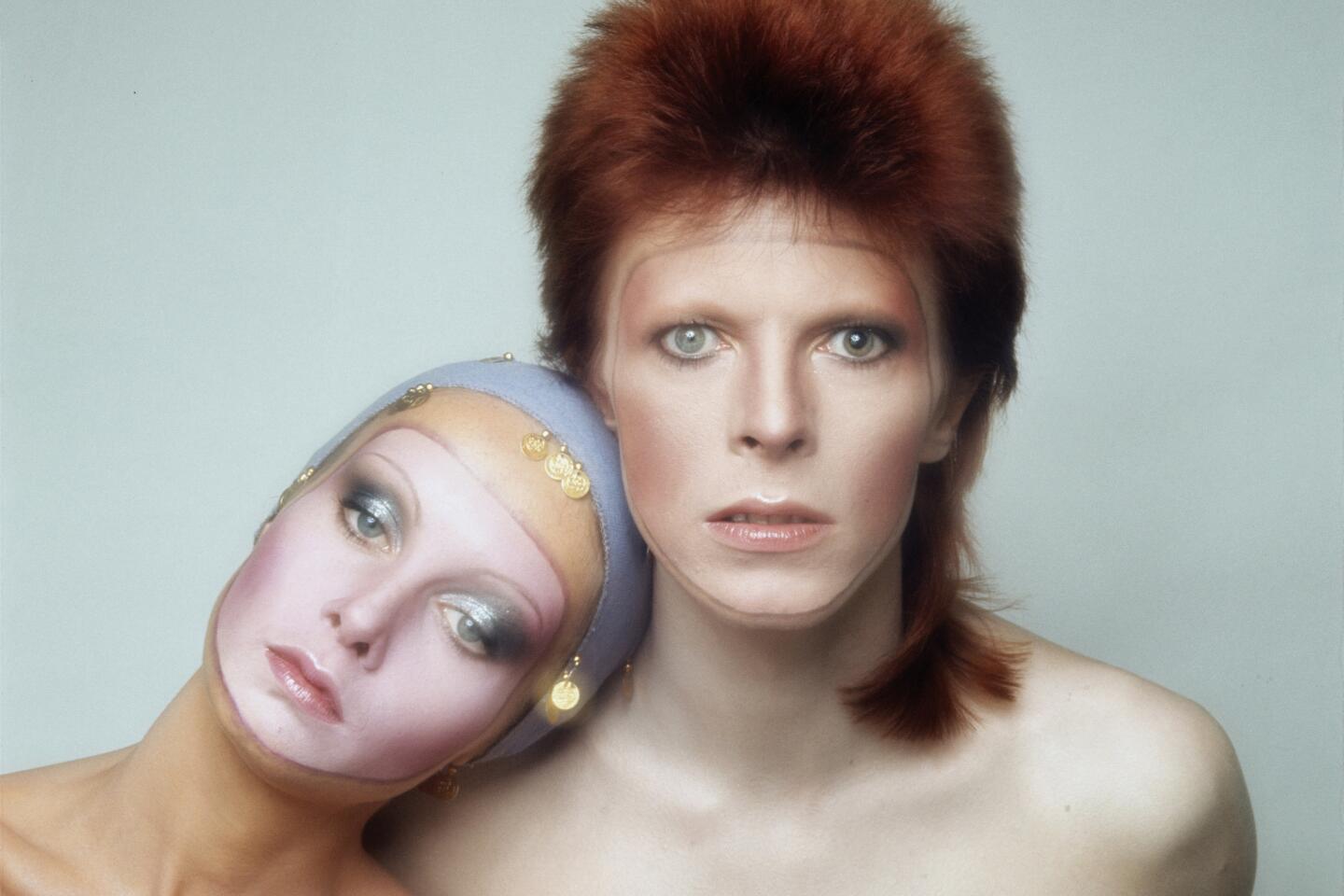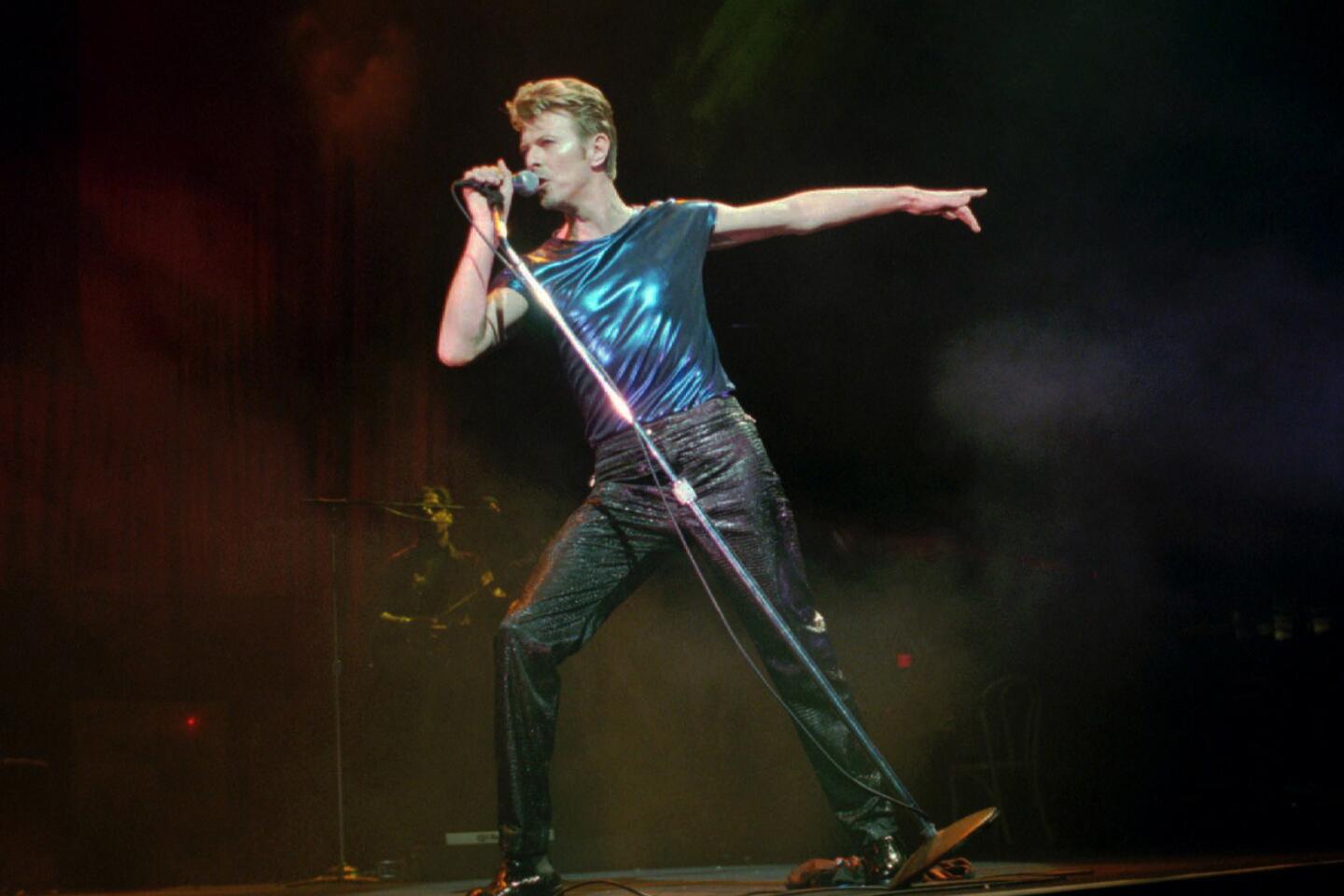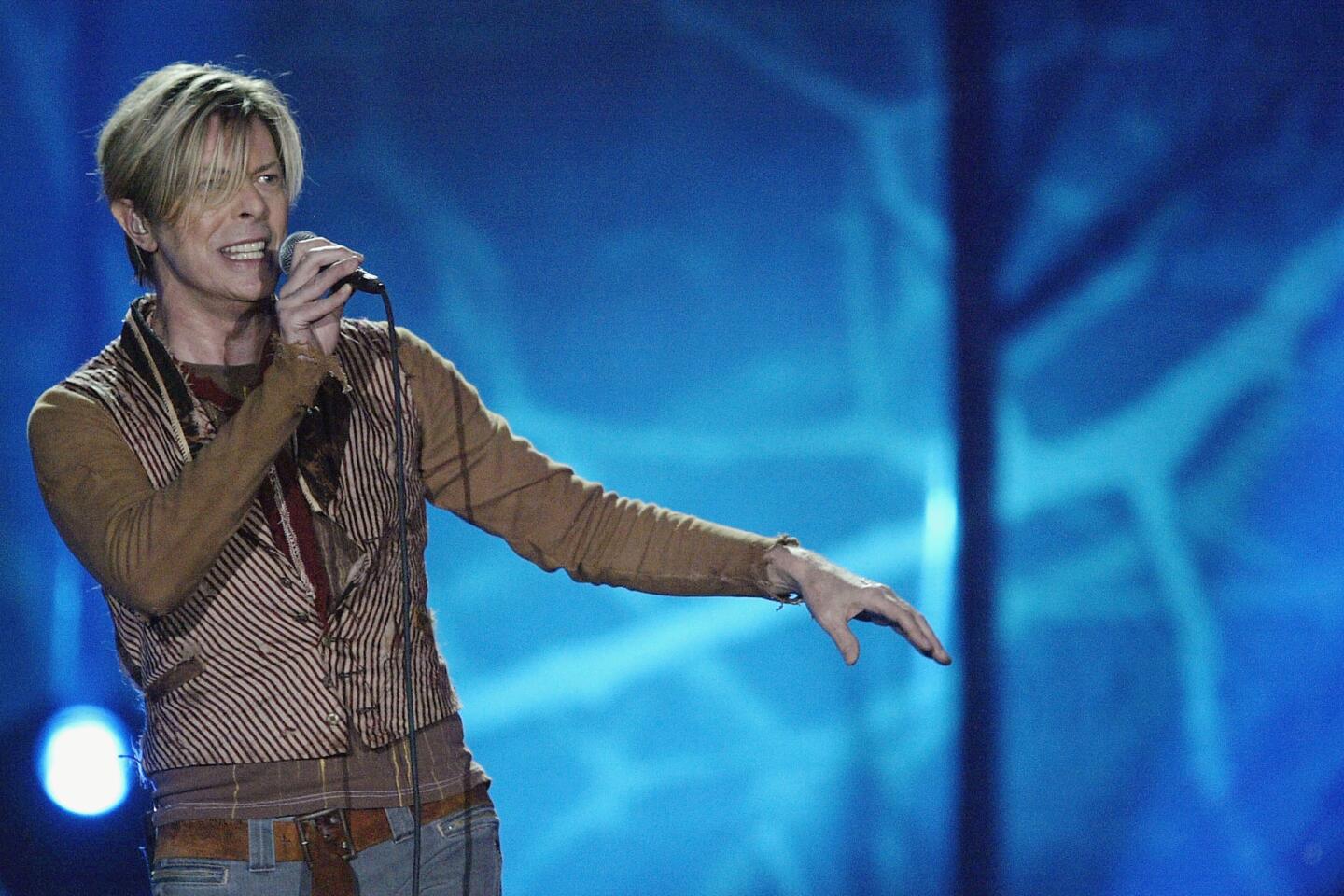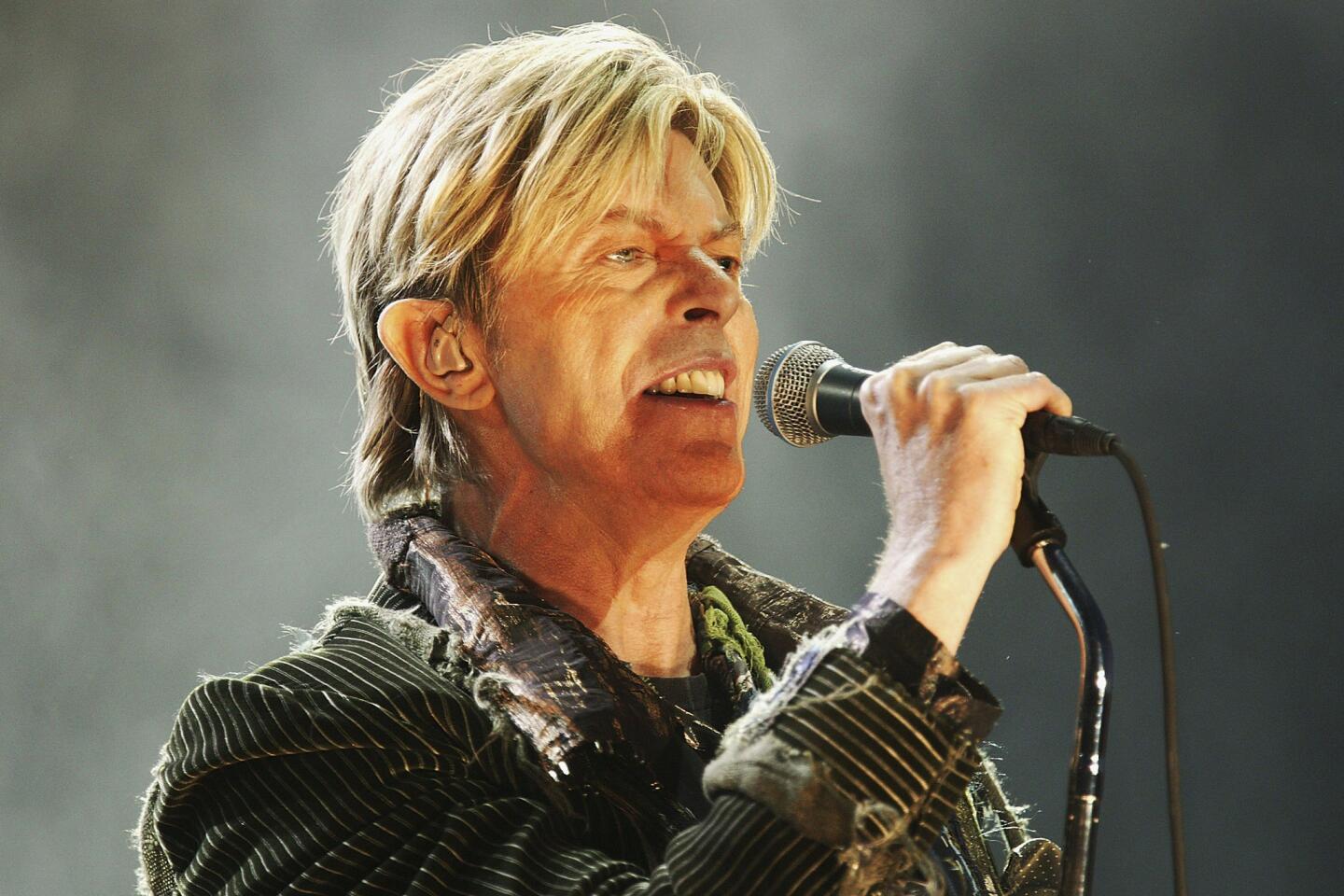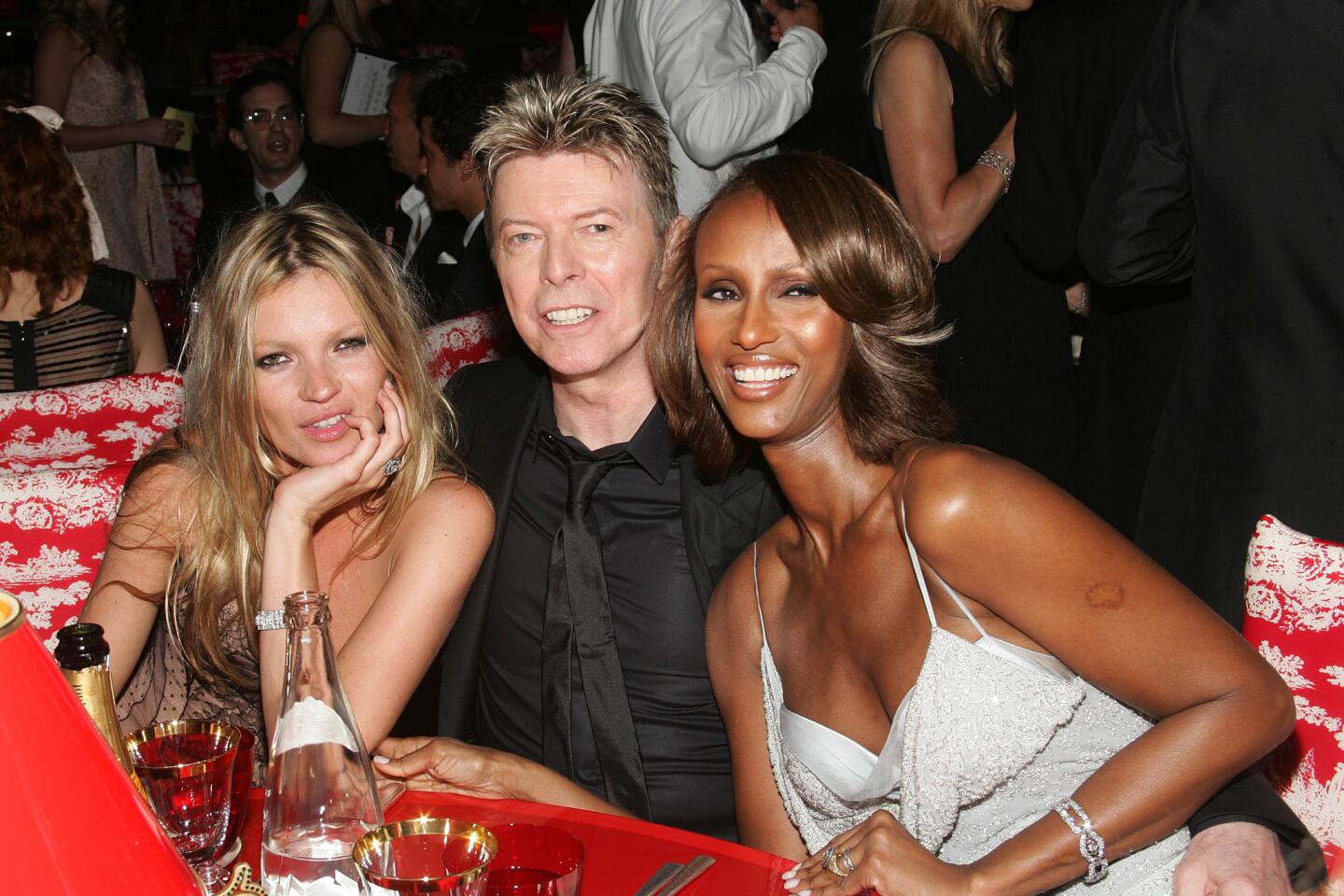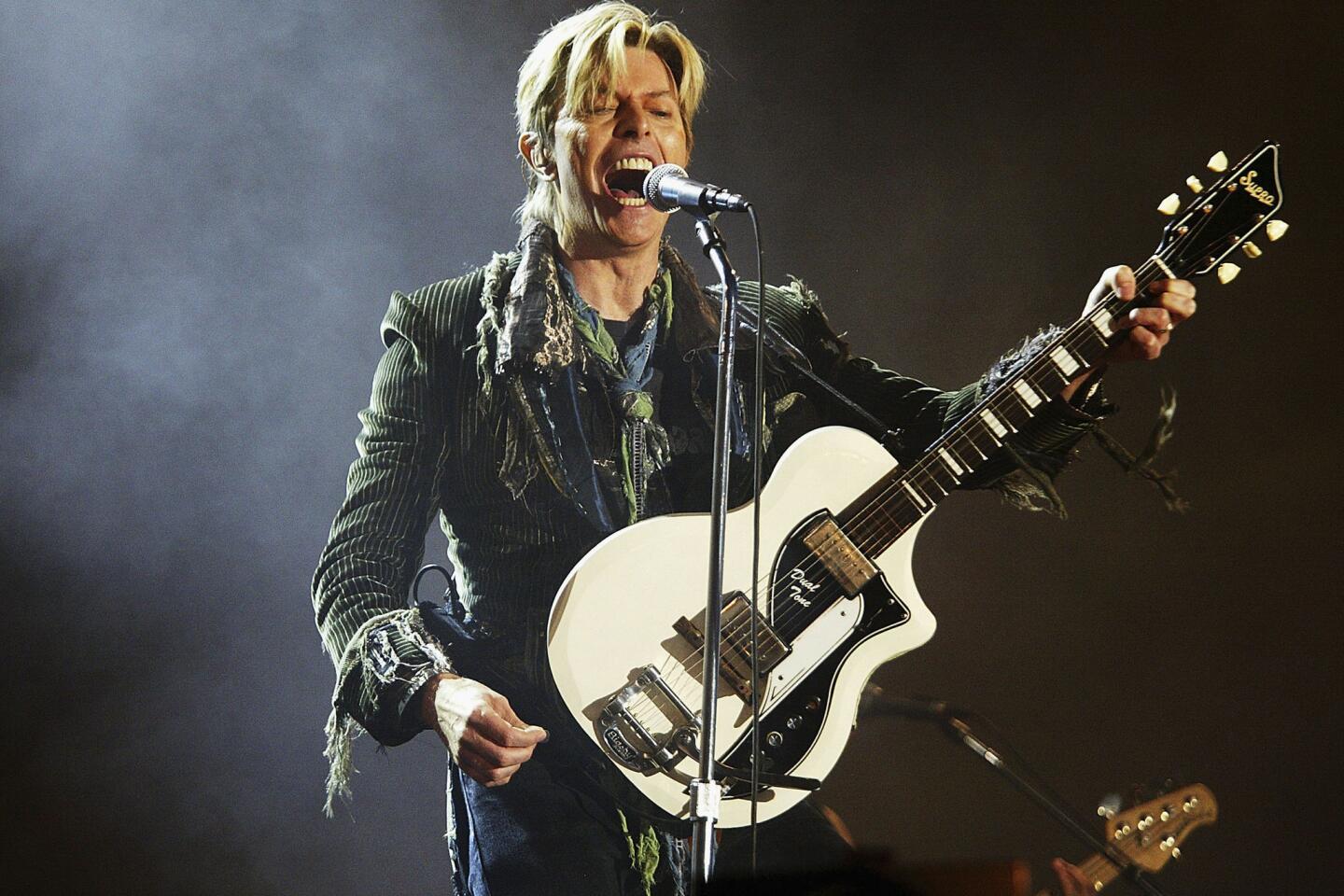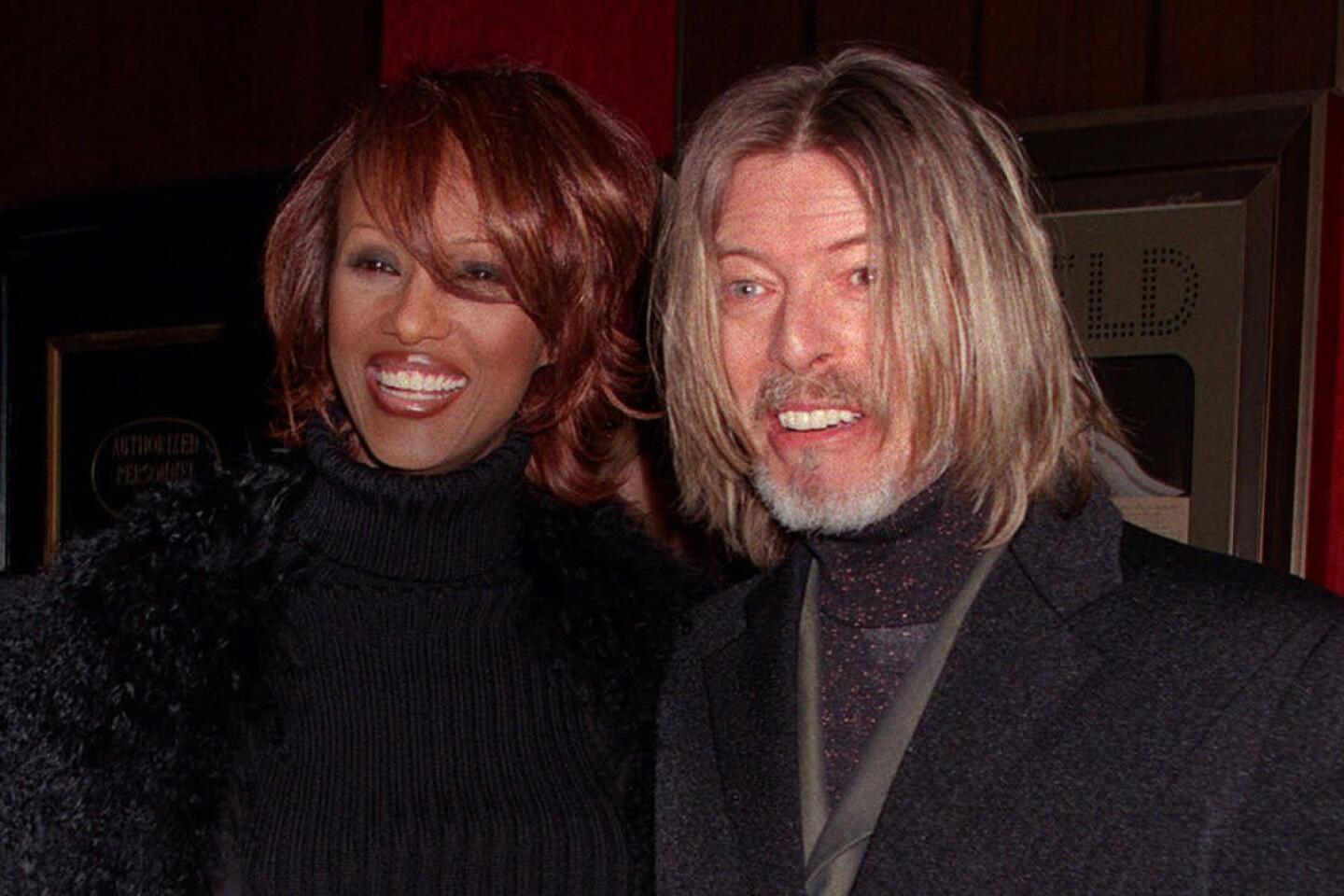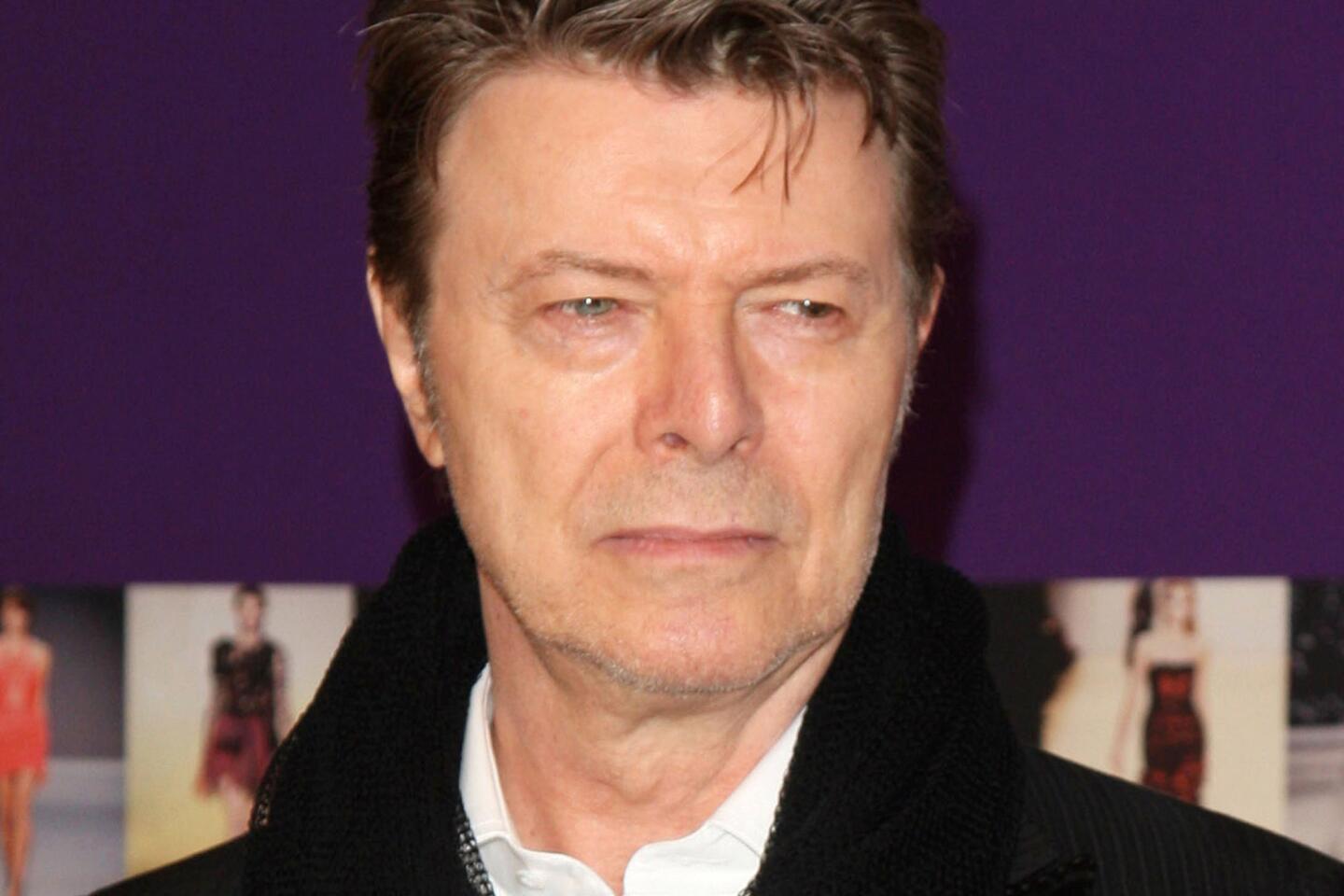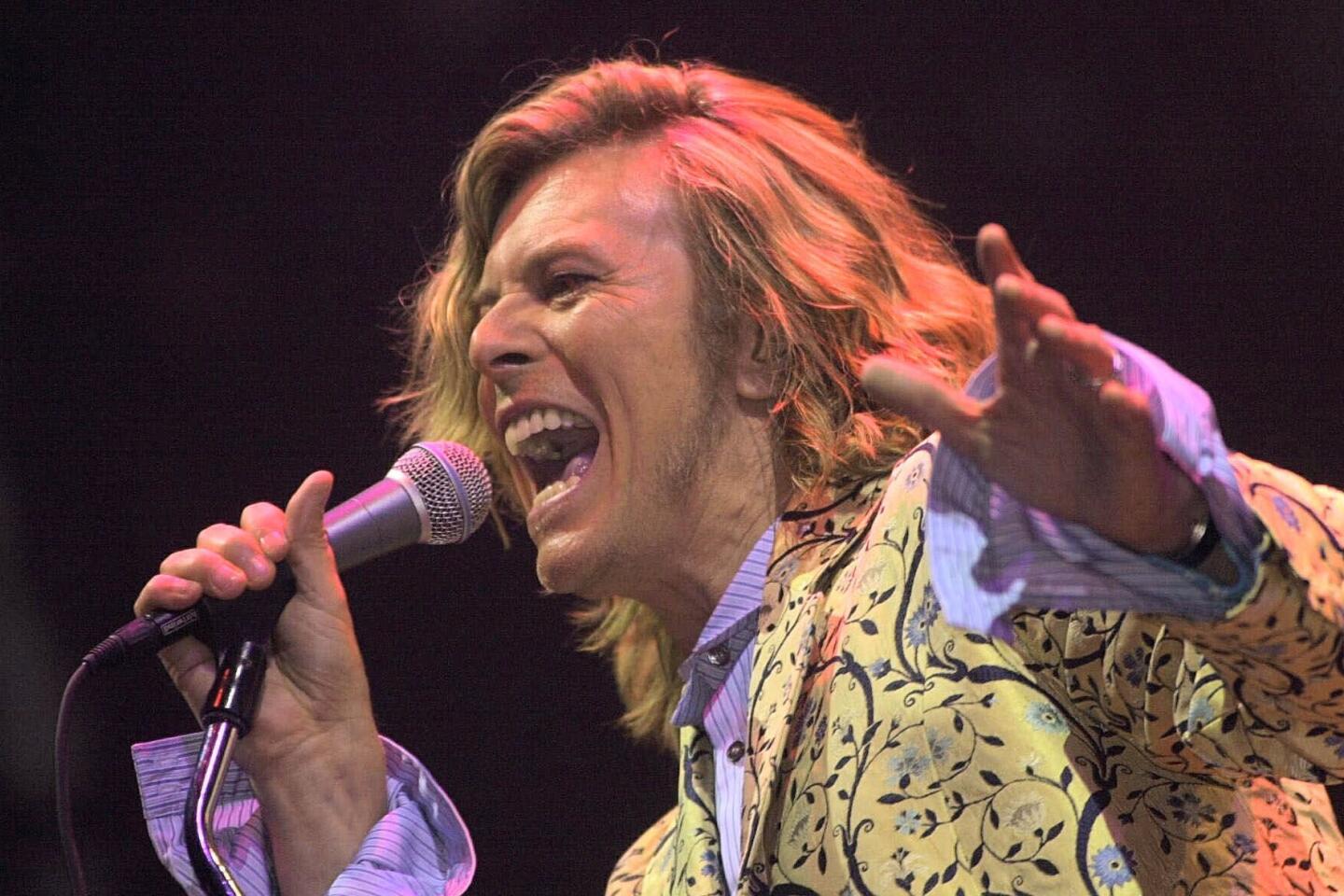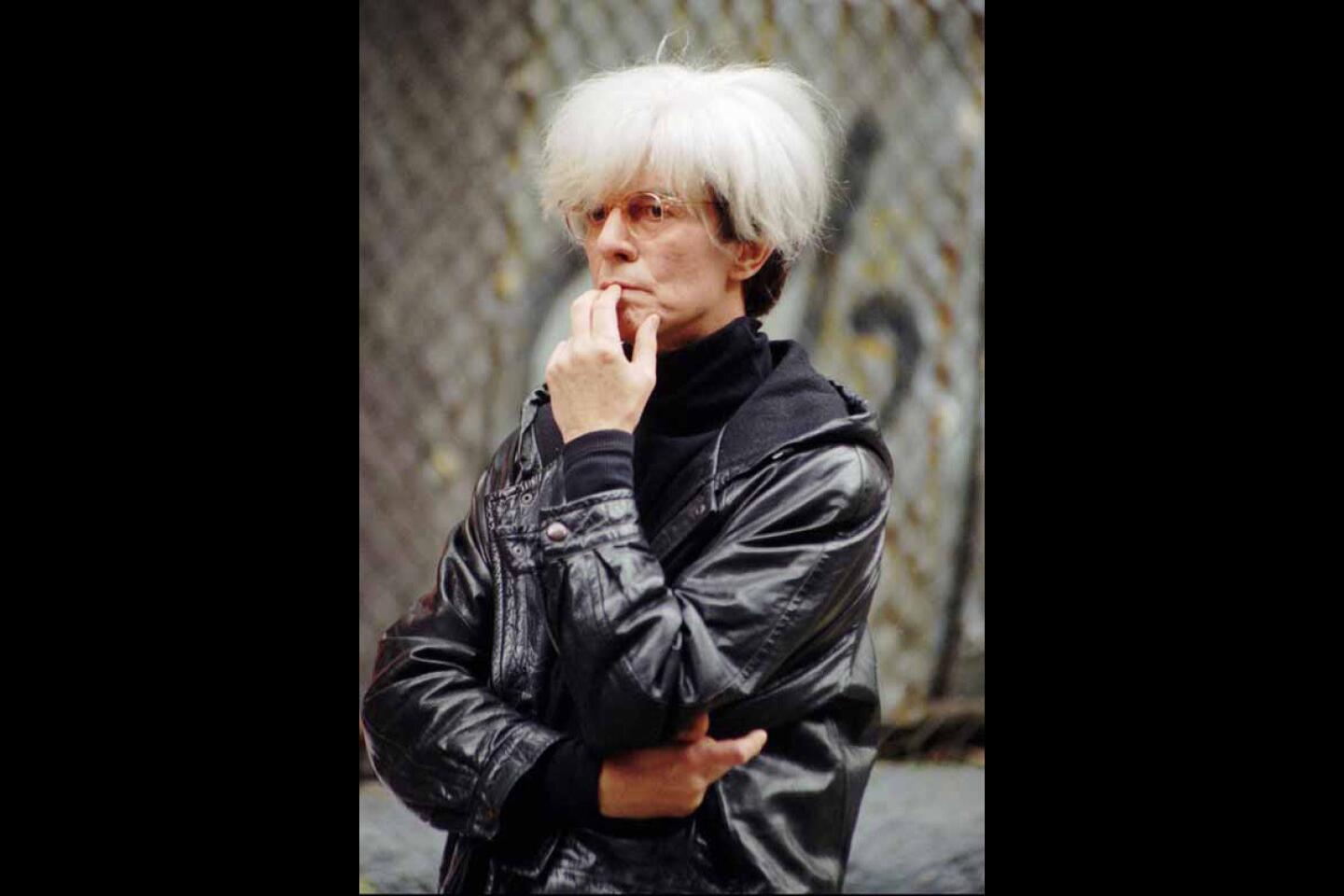David Bowie: An unlikely hip-hop icon
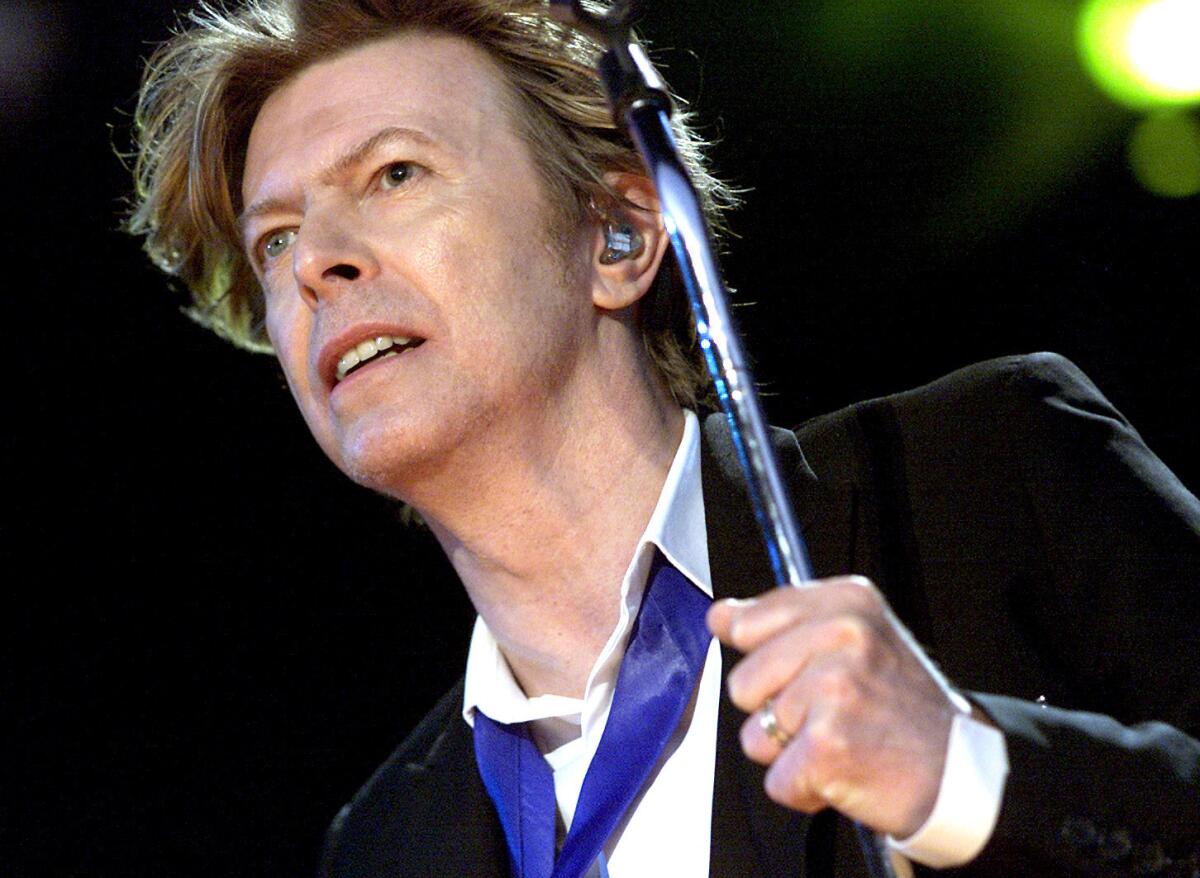
- Share via
David Bowie was an unapologetic, ferociously independent artist who inspired outsiders everywhere. So perhaps it’s not surprising that amid all his incalculable influences on music, he’s also something of an icon in hip-hop.
On Monday, the day after he died of cancer at age 69, many of today’s most important hip-hop artists gave some of his most sincere, moving appreciations.
“What a honor, what a soul. David Bowie, Spirit of Gold. RIP.,” wrote Kendrick Lamar, whose range of vocal techniques and character performance in song recall’s Bowie’s shape-shifting personas. “Hoping 2 meet u after we heard the news. At Brock’s house watchin your Doc’s & interviews. But no lens could ever capture your point of view.”
Kanye West, whose own mix of daring fashion choices, electronic experiments and sonic metamorphoses had a clear debt to Bowie, said, “David Bowie was one of my most important inspirations, so fearless, so creative, he gave us magic for a lifetime.”
Pharrell Williams added, “David Bowie was a true innovator, a true creative. May he rest in peace.” Big Boi, one half of OutKast, simply posted a perfectly poised shot of Bowie in concert from his Ziggy Stardust years.
But the influence was often literal -- Bowie has been popular hip-hop sample material for generations.
Bowie’s “Fame,” one of pop’s archest and most self-aware songs about success, made frequent appearances on hip-hop singles, bolstering Jay Z’s “The Takeover,” Ice Cube’s “Alive on Arrival,” MC Lyte’s “Put It on You” and Public Enemy’s “Night of the Living Baseheads.”
“Let’s Dance,” his eternal club-floor filler, was also stellar sample material for Puff Daddy, Notorious B.I.G. and Mase’s decadent “Been Around the World,” while on the other end of the spectrum, “Soul Love” showed up in underground cuts from J. Dilla and El-P.
And, of course, there’s Vanilla Ice, whose “Ice Ice Baby” launched a thousand debates on the lines between musical reference points and sample hijacking in drawing from Bowie’s collaboration with Queen, “Under Pressure.”
While the gaunt, sexually ambiguous British rocker would seem to come from a different world than the aggression and machismo often associated with hip-hop, it’s easy to see how MCs and producers responded to a songwriter so utterly, unapologetically himself.
His songs were staples of the imaginative ‘70s and ‘80s pop radio that came up alongside hip-hop’s rise. Hip-hop is a genre overtly concerned with fantasy life and escape from mundane, dispiriting circumstances -- a key component of Bowie’s material if there ever were one.
With Bowie’s outsize persona, paired with some of the most beautiful melodies and inspired aesthetics of anyone to ever take a stage, it’s obvious why all sorts of musical outsiders responded to him.
Follow @AugustBrown for breaking music news.
MORE:
Full coverage: David Bowie’s life and career
Sasha Frere-Jones: An insider’s look at the making of David Bowie’s secretive ‘Blackstar’ album
From the Robert Hilburn archives: David Bowie spends the ‘80s convincing us he’s just a normal guy
Mikael Wood review: David Bowie looks far beyond pop on jazz-inspired ‘Blackstar’
More to Read
The biggest entertainment stories
Get our big stories about Hollywood, film, television, music, arts, culture and more right in your inbox as soon as they publish.
You may occasionally receive promotional content from the Los Angeles Times.

